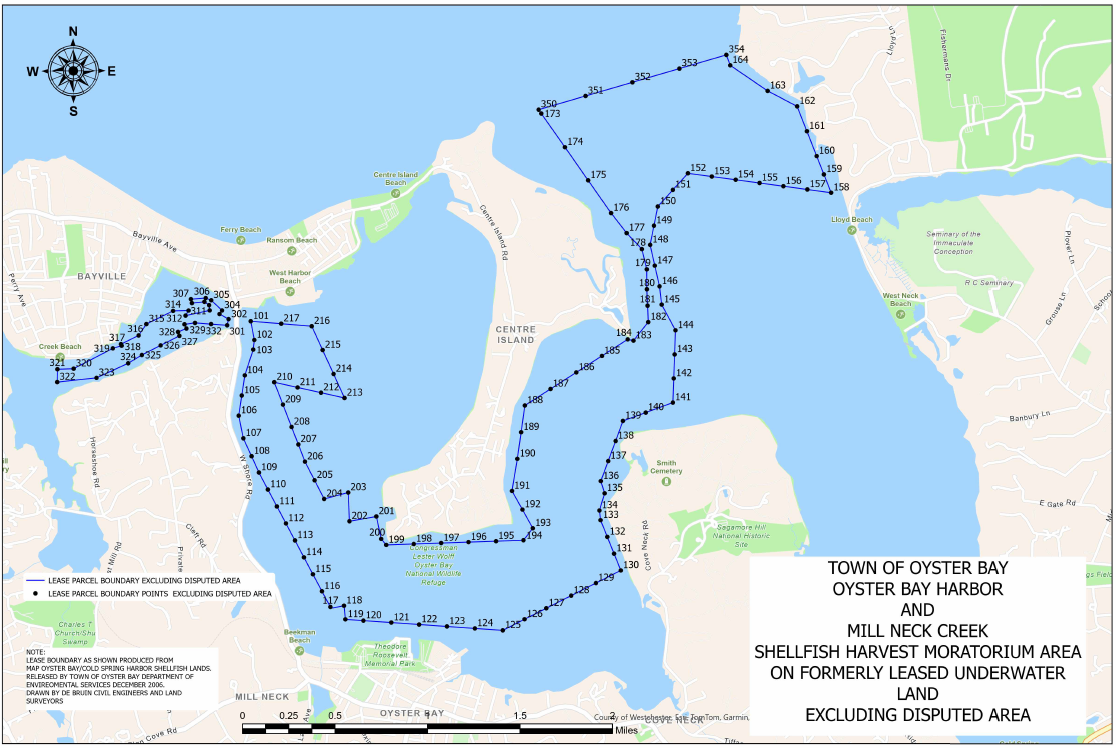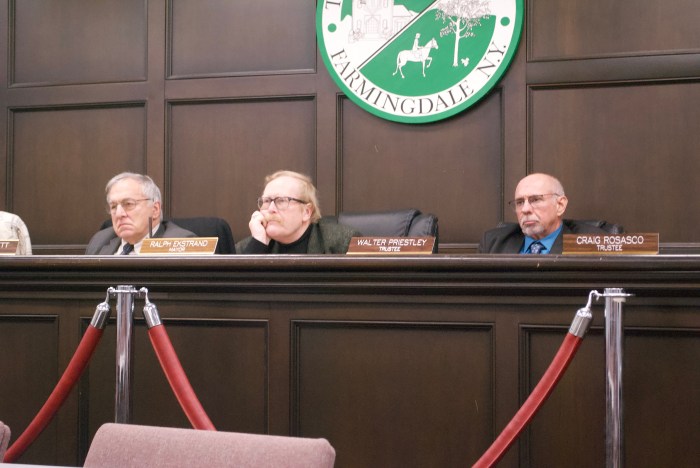The Nassau County State Supreme Court ruled on Tuesday, Aug. 5, that the Town of Oyster Bay had no legal obligation to renew a 30-year lease to Frank M. Flowers & Sons Inc. for access to underwater land, both for clam and oyster harvesting.
The ruling ended a years-long legal battle with Frank M. Flowers & Sons Inc., which has leased the underwater land for more than 130 years. The ruling said the town was not under any obligation to discuss renewing the lease.
In the dismissal, the court also stated that Frank M. Flowers & Sons cannot allege a breach of contract because they failed to uphold the contract when they stopped repopulating the area after harvesting.
Moreover, Frank M. Flowers & Sons “cannot argue that anything was taken from them when they were allowed to continue to take from underwater lands,” according to court documents, as the lease agreement expired.
The legal battles began in 2023, when the Town of Oyster Bay issued a filing against Frank M. Flowers & Sons Inc., suing for breach of contract after the family-owned company failed to continuously cultivate juvenile shellfish for repopulation near the end of their lease.
The company refused to repopulate the harbor but continued to harvest shellfish after being denied written confirmation that their lease would be renewed.
According to court documents, Frank M. Flowers & Sons Inc.’s “most significant concern was that they would invest in seeding during the last five years of the contract, but if the contract was not renewed, another party would be the beneficiary of their investment.”
After this filing, Frank M. Flowers & Sons and the Town of Oyster Bay filed multiple counterclaims against one another, with Frank M. Flowers & Sons suing the town for failing to renew their lease.
Frank M. Flowers & Sons’ 30-year lease expired on Sept. 30, 2024. Within a few weeks, a shellfish moratorium, approved by the town board, heightened tensions between the two entities.
According to town officials, the moratorium temporarily stopped all harvesting in the 1,850-acre area previously leased by Frank M. Flowers & Sons Inc. to strengthen the health of the harbor. Court documents highlighted how clams and oysters remove excess nitrogen from the water, emphasizing that an overharvest of these species can have serious environmental consequences.
During the moratorium, the town has been conducting testing to see how the long-term harvesting of the area impacts the environment.
According to a resolution passed by town officials, the moratorium was initially meant to last six months but was extended for another six months in March.
Town Deputy Commissioner of the Department of Environmental Resources Colin Bell said at the March hearing that work in the area will likely be complete by the end of the extension, meaning that the area would then be open to the public.
Bell also said the goal is to develop a plan for the best land-use designations within the previously leased lands and to file the required paperwork with the state.
Town Supervisor Joseph Saladino had mentioned the need for a “Bay Management Plan” at the August 2024 public hearing.
The current moratorium is expected to end later this year.





























